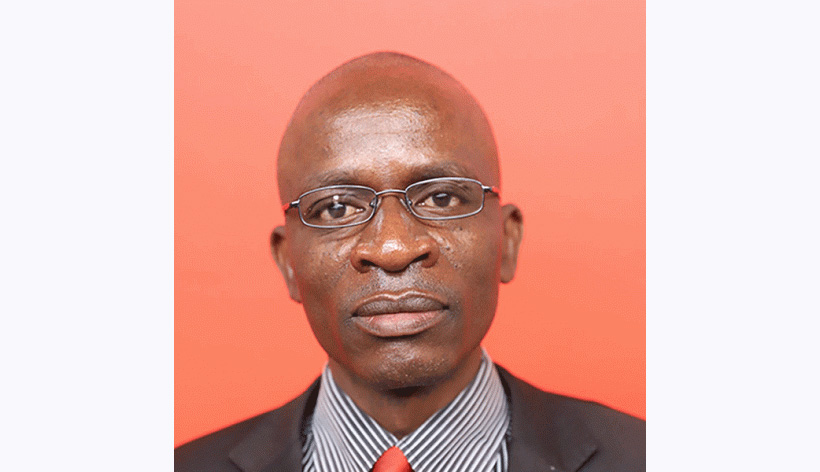Press freedom in Zimbabwe has come under renewed attack with the arrest of two journalists from the local daily NewsDay on charges of transmitting “false information”.
The journalists were arrested on 3 August on the basis of the controversial Criminal Law Act, as amended by the Cyber and Data Protection Act, which became law in December last year, despite strong opposition from press freedom lobby groups and civil society organisations.
The law is particularly criticised for giving excessive powers to the police authorities and the Ministry of Information, allowing surveillance of private electronic communications, in violation of the southern African country’s constitution.
What is significant about these latest arrests of journalists is that they do not stem, as has traditionally been the case in the country’s repression of press freedom, from actions against critics of the ruling Zimbabwe African National Union – Patriotic Front (Zanu-PF).
The arrest of the two journalists, along with the newspaper’s lawyer, was for reporting on a private company believed to be run by politically connected individuals.
Senior reporter Desmond Chingarande, who wrote the story, and Wisdom Mdzungairi, editor-in-chief of the NewsDay newspaper, were charged under a section of the Cyber Data Protection Act which critics say broadly criminalises the communication or dissemination of “false data messages”.
The two now have the dubious distinction of being the first journalists to be charged under the controversial cybersecurity law.
The Media Institute of Southern Africa (Misa) was quick to condemn the arrests.
“Misa Zimbabwe reiterates its long-standing position that journalists, in the exercise of their professional duties, exercise their constitutional rights as stipulated in section 61 of the Constitution and have the right to seek, receive and impart information,” the press freedom watchdog said.
“Any limitation on this right must meet the three-pronged test, which requires legality, proportionality and necessity. It is also our position that criminal sanctions for fake news are disproportionate and unnecessary,” the statement added.
These concerns come at a time when Zimbabwe’s record as one of the places where journalism is regarded as the most dangerous profession is worsening.
“On paper, the arrest of journalists has been instigated by private businessmen. But the truth is that charging senior journalists is sinister,” said Tawanda Majoni, an investigative journalist and national coordinator of the Development Information Fund, a non-governmental organisation that supports local investigative journalism projects.
“It represents a serious threat to freedom of the media and freedom of expression, as well as access to information in the public interest as provided for in the respective sections of the Zimbabwean Constitution,” Majoni told IPS.
What began with the promise of wide-ranging reforms of democratic openness following the ascension to the presidency of Emmerson Mnangagwa, after the ouster of Robert Mugabe (1987-2017), has escalated into an escalating crackdown on government critics, with media professionals as a particular target.
Opposition politicians and human rights activists have encountered police arrests, and press freedom advocates have not been spared, despite calls from countries such as the European Union and the United States, which have expressed concern over what are seen as arbitrary detentions.
On 9 May, on the occasion of World Press Freedom Day, Reporters Without Borders found that Zimbabwe had continued to fall in the press freedom index, from 130th in 2021 to 137th in 2022.
The country has witnessed a steady increase in arrests of journalists, which have not resulted afterwards in prison sentences, despite routine arrests and weeks behind bars awaiting trial.
“These arrests are a worrying trend as criminal law provisions are invoked to criminalise journalism,” said Otto Saki, a Zimbabwean human rights lawyer.
“These provisions are clearly unconstitutional and are likely to be struck down by the Constitutional Court,” Saki told IPS.
Several journalists have been arrested in recent months, and there are fears that the crackdown on journalists will intensify as next year’s crucial presidential elections approach, with campaigning already in full swing.
“It is always the case that during power contests, on the eve of major political events, we see governments invoking these kinds of laws,” Saki said.
Despite numerous legal challenges to the unconstitutionality of the arrests of journalists, government spokesman Ndavaningi Mangwana has reiterated that journalists are not above the law and “must have their day in court”.
On the arrest of the two NewsDay journalists, Majoni said that “those who instigated the arrest of the three clearly had more decent options to use, which, tellingly, they ignored, as a suggestion of the difficult times ahead for journalists”.
“They could have simply appealed to the Data Protection Authority to intervene, and they would have appealed to the Zimbabwe Media Council or the Zimbabwe Media Commission. So, this is like using some people to test the new law,” he told IPS.
However, with the country already in a pre-election climate, journalists are not the only sector being targeted by the government, as non-governmental organisations (NGOs) are also being threatened with strict surveillance under the proposed Private Voluntary Organisations Amendment Bill.
If passed, NGOs will be required to submit programmes and accounts to the government showing the source of their funding, as the authorities claim that foreign funds are used to undermine the ruling party.
The bill has already been criticised for its ambition to restrict freedom of association at a time when NGOs are carrying out voter education programmes ahead of the 2023 elections, while millions of people in the country are in need of food aid.
For now, it is unclear what fate awaits the NewsDay journalists, as they are expected to appear in court when they receive a summons.






